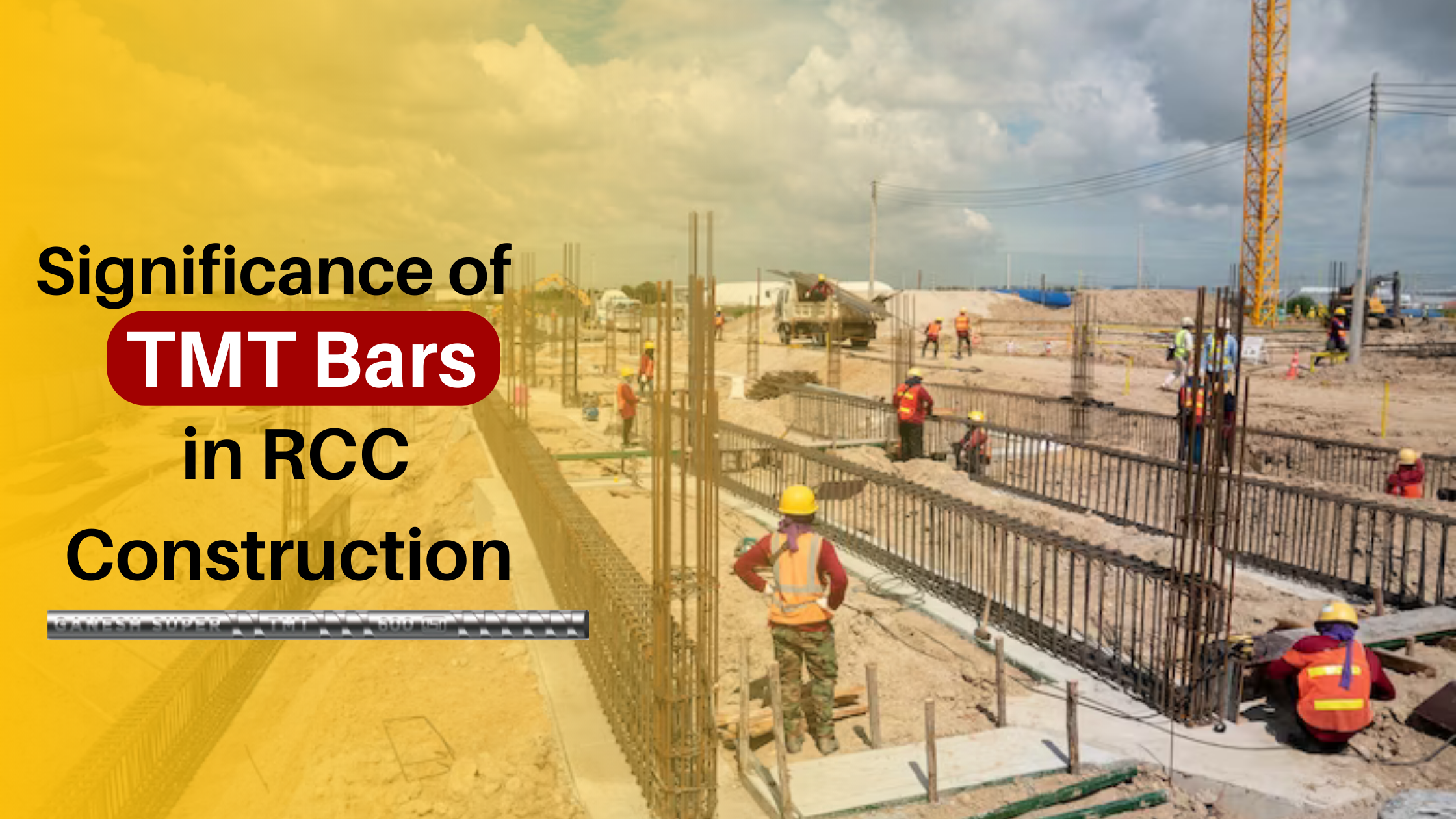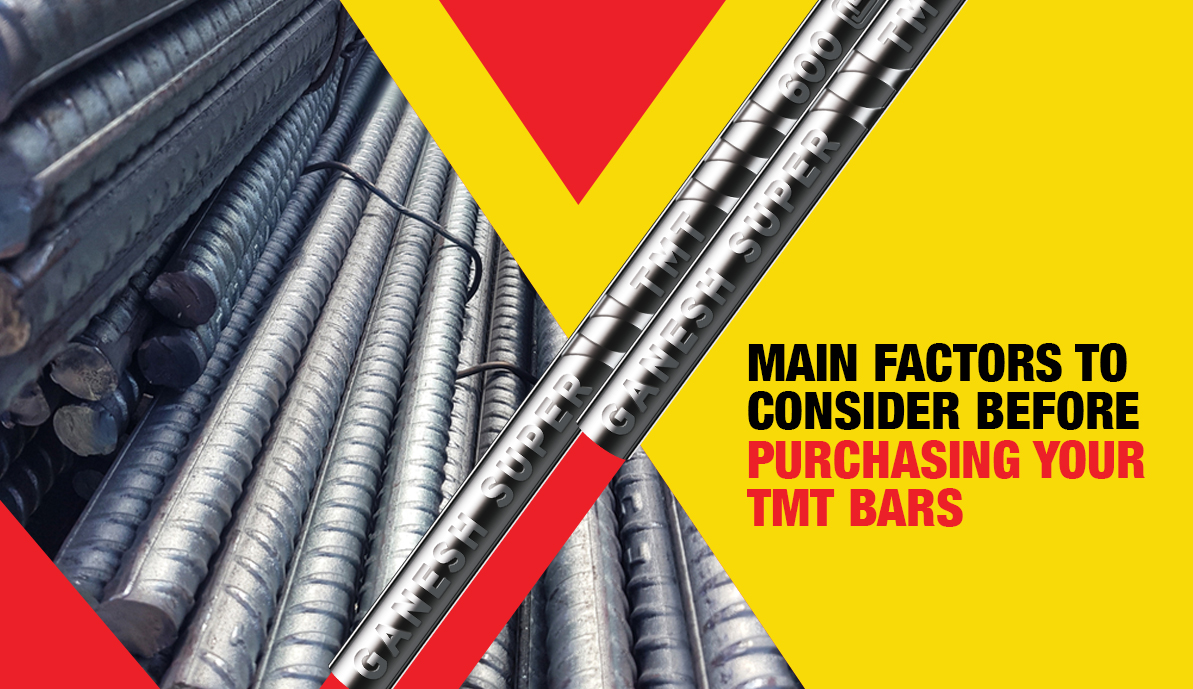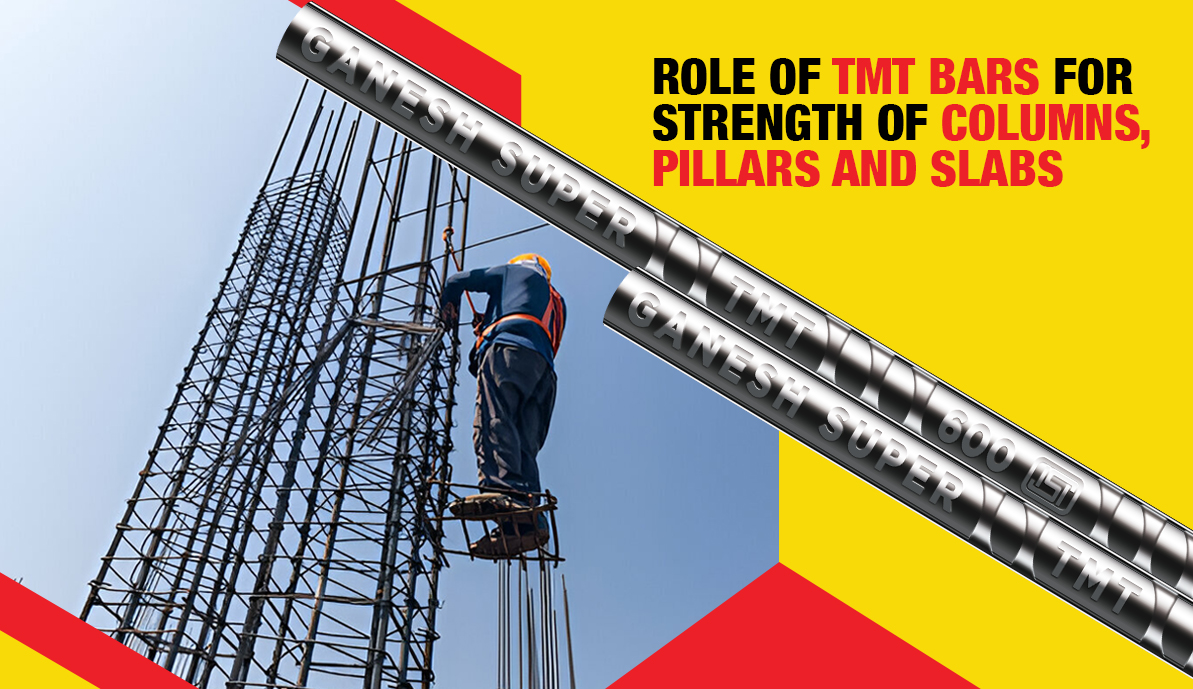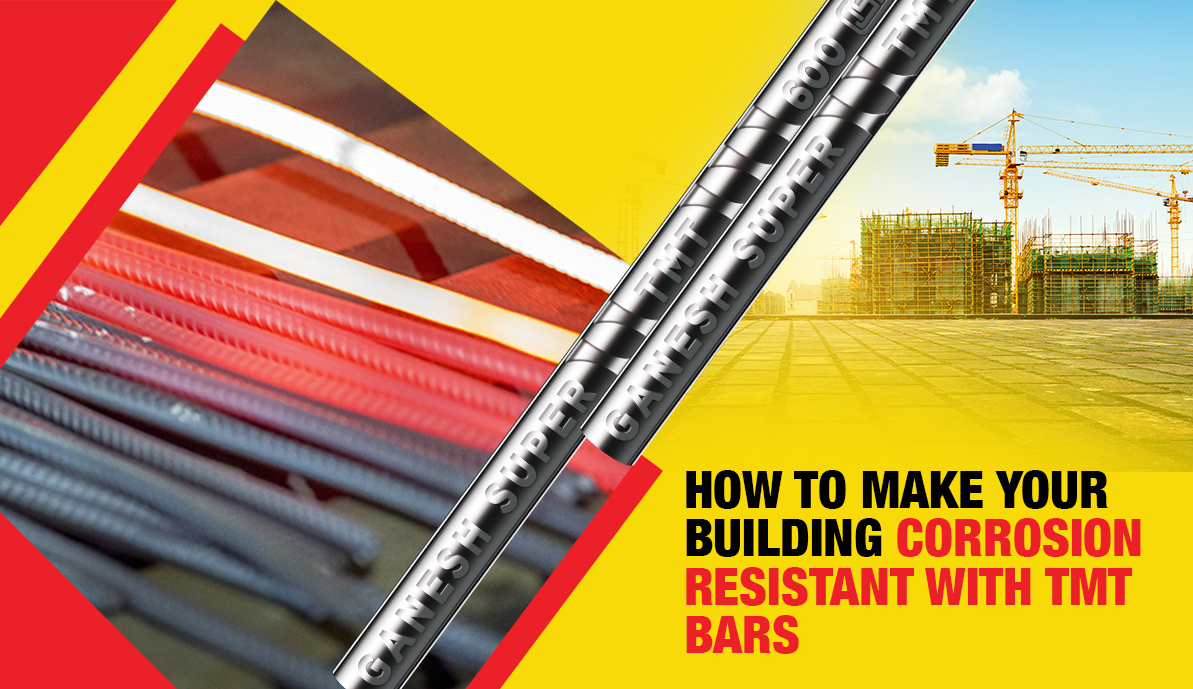TMT bars are one of the most popular construction materials used to reinforce construction structures. The thermo-mechanically treated bars undergo high-temperature heating and cooling processes to increase their strength, bendability, and corrosion resistance properties. Let’s see how TMT bars play a significant role in reinforcing RCC construction structures.
What is RCC Construction?
RCC construction is a popular method in the construction industry, used in a wide range of structures, from residential buildings to bridges and high-rise skyscrapers. The RCC stands for Reinforced Cement Concrete. In 1853 Francois Coagent, a French industrialist, built a house in Paris with reinforced cement concrete. That was the first ever attempt to build using reinforced cement concrete in modern history. Since then, the technology has evolved, with one of the highest buildings in the world being built using RCC.
Best TMT bars companies suggest using TMT bars in RCC construction works. Concrete is excellent in compression, meaning it can withstand the force of weight pushing down on it. However, it has limited tensile strength, making it prone to cracking and failure when subjected to tension. On the other hand, TMT steel bars have exceptional tensile strength but lack compressive strength. By combining the two materials, one can create a powerful construction that can handle both compressive and tensile forces efficiently.
The Role of TMT Bars in RCC Construction
Enhancing Tensile Strength:
TMT bars are steel bars structured with a unique manufacturing process called Thermo-Mechanical Treatment. During this process, the bars are subjected to intense heat followed by rapid quenching, imparting them with a tough outer layer and a softer core. This results in a microstructure that can withstand high tensile stresses, making TMT bars the ideal choice for reinforcing concrete in RCC construction.
Improved Bonding with Concrete:
TMT bars possess a ribbed or deformed surface, which enhances the bond between the bars and the surrounding concrete. This strong bond ensures the effective transfer of tensile forces between the two materials, preventing slippage or separation during load-bearing scenarios. Because of these characteristics, most TMT bars suppliers suggest using TMT bars to reinforce RCC constructions.
Resistance to Corrosion:
Corrosion is one of the primary concerns in construction, as it can weaken the structural integrity of a building. TMT bars are manufactured using low-carbon steel, which significantly reduces their susceptibility to corrosion. Additionally, the ribbed surface allows concrete to cover the bars more effectively, acting as a protective layer against moisture and corrosive agents.
Ductility and Flexibility:
TMT bars exhibit excellent ductility, meaning they can undergo substantial deformation without fracturing. This property is crucial in areas prone to seismic activity, as it enables the structure to absorb energy during earthquakes without collapsing. The ability of TMT bars to bend without breaking also simplifies construction processes, as they can be easily cut and shaped as per the design requirements.
Fire Resistance:
In case of a fire outbreak, the unique manufacturing process of TMT bars ensures they can withstand high temperatures without significant loss of strength. This attribute enhances the fire resistance of RCC structures, providing additional safety to occupants.
Cost-Effectiveness:
While high-quality TMT bars might be slightly costlier than traditional mild steel bars, they offer significant long-term cost savings due to their superior durability and low maintenance requirements. The reduced risk of corrosion-related damages and the increased lifespan of the structure justify the initial investment in TMT bars.
Wrapping it up
In conclusion, TMT bars play a pivotal role in RCC construction, acting as the backbone that reinforces concrete and imparts the necessary tensile strength to withstand various loads and stresses. Their enhanced tensile strength, bonding with concrete, resistance to corrosion, ductility, and fire resistance make them the preferred choice for modern construction projects. If you are looking for reliable TMT bars, consider Ganesh Super TMT bars for your next construction work.





